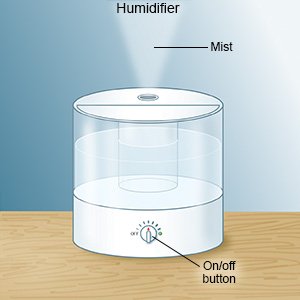Acute Cough in Children
Medically reviewed by Drugs.com. Last updated on Aug 4, 2025.
What is an acute cough?
An acute cough can last up to 3 weeks. Common causes of an acute cough include a cold, allergies, or a lung infection.
How is the cause of an acute cough diagnosed?
Your child's healthcare provider will examine your child and listen to his or her lungs. Tell the provider if your child has coughed up any mucus, or has a fever or shortness of breath. Also tell the provider what makes your child's cough better or worse. Depending on your child's symptoms, he or she may need a chest x-ray. A sample of your child's mucus may be collected and tested for infection.
How is an acute cough treated?
An acute cough usually goes away on its own. Your child may need medicine to stop the cough. He or she may also need medicine to decrease swelling or help open his or her airways. Medicine may also be given to help your child cough up mucus. If your child has an infection caused by bacteria, he or she may need antibiotics. Do not give cough and cold medicine to a child younger than 4 years. Talk to your healthcare provider before you give cold and cough medicine to a child older than 4 years.
Treatment options
The following list of medications are related to or used in the treatment of this condition.
What can I do to manage my child's cough?
- Keep your child away from others who are smoking. Nicotine and other chemicals in cigarettes and cigars can make your child's cough worse.
- Give your child extra liquids as directed. Liquids will help thin and loosen mucus so your child can cough it up. Liquids will also help prevent dehydration. Examples of liquids to give your child include water, fruit juice, and broth. Do not give your child liquids that contain caffeine. Caffeine can increase your child's risk for dehydration. Ask your child's healthcare provider how much liquid he or she should drink each day.
- Have your child rest as directed. Do not let your child do activities that make his or her cough worse, such as exercise.
- Use a humidifier or vaporizer. Use a cool mist humidifier or a vaporizer to increase air moisture in your home. This may make it easier for your child to breathe and help decrease his or her cough.

- Give your child honey as directed. Honey can help thin mucus and decrease your child's cough. Do not give honey to children younger than 1 year. Give ½ teaspoon of honey to children 1 to 5 years of age. Give 1 teaspoon of honey to children 6 to 11 years of age. Give 2 teaspoons of honey to children 12 years of age or older. If you give your child honey at bedtime, brush his or her teeth after.
- Give your child a cough drop or lozenge if he or she is 4 years or older. These can help decrease throat irritation and your child's cough.
Call your local emergency number (911 in the US) for any of the following:
- Your child has trouble breathing.
- Your child coughs up blood, or you see blood in his or her mucus.
- Your child faints.
When should I call my child's healthcare provider?
- Your child's lips or fingernails turn dark or blue.
- Your child is wheezing.
- Your child is breathing fast:
- More than 60 breaths in 1 minute for infants up to 2 months of age
- More than 50 breaths in 1 minute for infants 2 months to 1 year of age
- More than 40 breaths in 1 minute for a child 1 year or older
- The skin between your child's ribs or around his or her neck goes in with every breath.
- Your child's cough gets worse, or it sounds like a barking cough.
- Your child has a fever.
- Your child's cough lasts longer than 5 days.
- Your child's cough does not get better with treatment.
- You have questions or concerns about your child's condition or care.
Care Agreement
You have the right to help plan your child's care. Learn about your child's health condition and how it may be treated. Discuss treatment options with your child's healthcare providers to decide what care you want for your child. The above information is an educational aid only. It is not intended as medical advice for individual conditions or treatments. Talk to your doctor, nurse or pharmacist before following any medical regimen to see if it is safe and effective for you.© Copyright Merative 2025 Information is for End User's use only and may not be sold, redistributed or otherwise used for commercial purposes.
Learn more about Acute Cough
Treatment options
Care guides
Medicine.com guides (external)
Further information
Always consult your healthcare provider to ensure the information displayed on this page applies to your personal circumstances.
